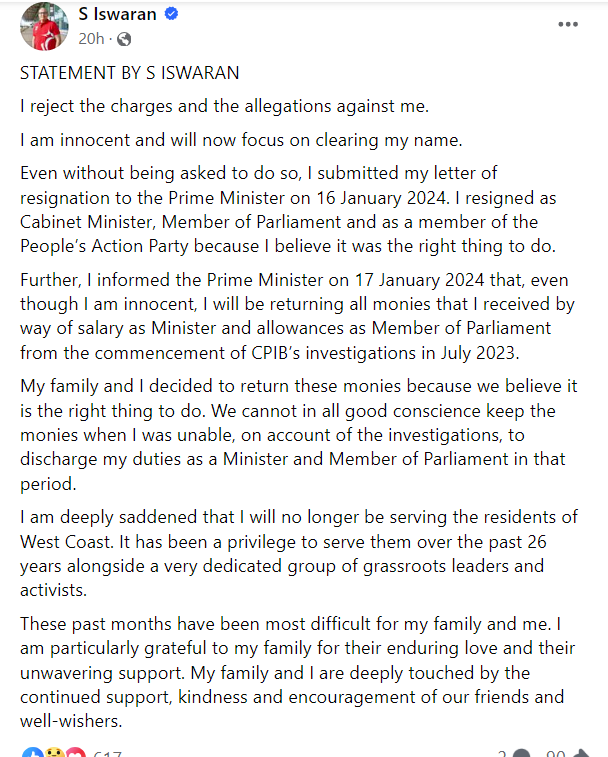That will be obstruction of justice. He is not supposed to receive any gifts above $50 anyways for public or civil servants.
The proper process for receiving gifts above $50 is to either reject or declare to his superior and the Gov and then if approved, pay the same amount to the Gov and not to OBS, LOL.
I remembered when I was a public servant many years back I was offered a gift by a vendor which I suspect worth several hundreds dollars. When I found out that I have to declare and the cumbersome process to seek approval, I jitao reject the vendor already.
Any deviation from this process is considered corruption or under Section 165 offences can be accused of "accepting" or "obtaining" gratification or valuable items.
https://www.channelnewsasia.com/sin...tion-bribes-public-servant-penal-code-4056821
Is there a difference between obtaining and accepting bribes?
According to the PCA and Penal Code, those charged with corruption or Section 165 offences can be accused of "accepting" or "obtaining" gratification or valuable items. All of Iswaran's charge sheets state that he
obtained these.
Mr Wee said the implication of someone "obtaining" such things is that they asked for it, rather than being offered it.
But lawyers told CNA that from their own experience, there was no fundamental difference between obtaining and accepting bribes.
Mr Josephus Tan, director of Invictus Law Corporation, said it would not make much of a difference - in terms of the Section 165 charges - if Iswaran does go on trial. But it would matter for mitigation and sentencing if he ends up pleading guilty.
Can public servants receive gifts?
Under
Singapore’s public service rules on gifts, civil servants cannot retain gifts worth more than S$50 unless they pay the market value of the gift to the government, and if it does not affect the integrity of the civil service.
Political office-holders adopt a “similar spirit and principles” in their official activities and there are specific rules spelt out in the Code of Conduct for Ministers, said Minister-in-charge of the Public Chan Chun Sing in parliament last year.
Mr Tan said a rule of thumb for all public servants is that they should not accept gifts in the form of cash, perishable goods or favours.
“We have heard real-life examples whereby they have to make formal declarations and go through an audit process - some of this can be very complicated,” he added.
Mr Chooi also pointed to Section 8 of the PCA, which imposes a presumption of corruption in certain cases. This means that Iswaran will have to prove that he received the gratification in a non-corrupt manner.
Mr Chooi said this presumption makes it “very treacherous” for public servants to receive gifts. “The only safe way to avoid liability is to either return them straight away or declare them,” he added.
-------------




 ) as long as you don't get caught (SAF rule) but any deviation from this official process is considered corruption or under Section 165 offences can be accused of "accepting" or "obtaining" gratification or valuable items.
) as long as you don't get caught (SAF rule) but any deviation from this official process is considered corruption or under Section 165 offences can be accused of "accepting" or "obtaining" gratification or valuable items.

